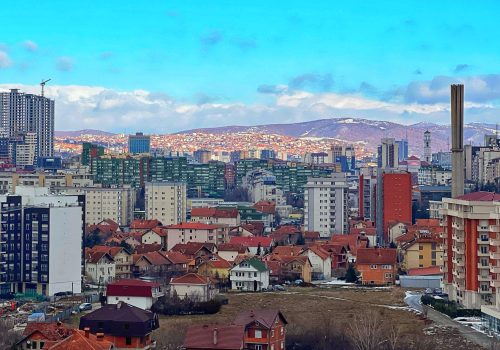The European Union Growth Plan for the Western Balkans: A reality test for EU enlargement
The European Union (EU) Growth Plan for the Western Balkans aims to integrate the region into the EU single market, enhance regional cooperation, implement significant governance and rule of law reforms, and boost EU financial support. In doing so, the EU seeks to foster economic development, political stability, and security in the region amid rising geopolitical tensions, while accelerating the Western Balkans’ EU accession process.
The Growth Plan holds substantial potential to reinvigorate the enlargement process and counter the stagnation felt by both the EU and the region. Strong points include:
- Tangible benefits before full accession: Providing stronger incentives for reform.
- Active involvement of regional governments: Increasing buy-in from local leaders, who must submit their own reform agendas.
- Enhanced economic integration, greater access to the EU market, increased EU funding, and reforms to governance and the rule of law: Stimulating investment, promoting economic growth, and raising living standards.
These improvements would bring the Western Balkans closer to the economic success seen in the Central and Eastern European countries in the EU over the past two decades. Moreover, fostering deeper regional cooperation will not only deliver an economic boost but also contribute to political normalization. If successful, the plan will bolster the EU’s political influence in the region, countering the impact of external actors and encouraging much-needed nearshoring investment from EU firms.
However, the plan faces several challenges:
- Enforceability: Although conditionality is rigorous, with disbursement of funds tied to strict conditions to prevent misuse, there are concerns regarding its enforceability. The European Court of Auditors has already raised reservations.
- Quantity: Additionally, the financial support offered is significantly lower than what EU member states in Southeast Europe receive. The reforms required for fund access and single market integration are substantial and will demand significant political will and institutional capacity—both of which have been lacking in the region at times over the past two decades.
The success of the growth plan will largely depend on its implementation. The EU must ensure rigorous enforcement of conditionality, reward positive reform steps, and increase funding for countries making progress. Civil society in the Western Balkans should be engaged as much as possible to foster broader support and transparency. The EU should also leverage the plan to align with its broader geopolitical and geoeconomic interests, particularly in strengthening its strategic autonomy. Additionally, the Growth Plan should be fully integrated with the EU’s competitiveness, green, and digital transition agendas. For their part, Western Balkans leaders should seize the increased agency provided by the plan. They must take ownership of the reforms they propose, participate actively in EU meetings, and design their reform agendas to deliver better living standards and deeper EU integration for their populations.
About the authors

Dimitar Bechev
Nonresident Senior Fellow, Europe Center, Atlantic Council
Senior Fellow, Carnegie Europe

Isabelle Ioannides
Nonresident Senior Research Fellow
Hellenic Foundation for Foreign and European Policy (ELIAMEP)

Richard Grieveson
Deputy Director
Vienna Institute for International Economic Studies
Related content
Explore the program

The Europe Center promotes leadership, strategies, and analysis to ensure a strong, ambitious, and forward-looking transatlantic relationship.
Image: Shipping containers are loaded in the port of Durrës, Albania, on the Adriatic Sea. December 8, 2014. SHUTTERSTOCK/Dimos



